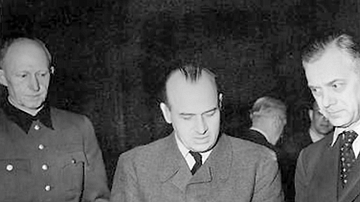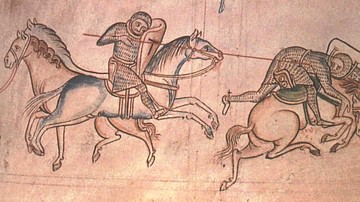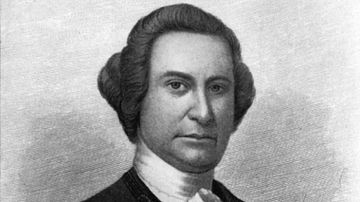Search
Remove Ads
Advertisement
Summary 
Loading AI-generated summary based on World History Encyclopedia articles ...
Search Results

Interview
Interview: When Money Talks by Frank Holt
Join World History Encyclopedia as they talk to Frank Holt about his new book When Money Talks: A History of Coins and Numismatics published by Oxford University Press. Kelly (WHE): Thank you so much for joining me today. Do you want to...

Definition
Twelfth Night - Shakespeare's Most Festive Play
Twelfth Night, or What You Will is a romantic comedy by William Shakespeare (l. c. 1564-1616), written between 1600 and 1601 and first performed on 2 February 1602. As suggested by the title's allusion to Twelfth Night – the night before...

Article
Medieval Knights: 12 of the Best
The knights of medieval Europe were meant to be the finest fighting men of their age, even more important, they were expected to be pure in thought and deed, as exemplified in the chivalrous code which they (usually) followed. Here are the...

Definition
Sir Thomas More
Sir Thomas More (1478-1535 CE) was a lawyer, scholar, statesman, and Lord Chancellor to Henry VIII of England (r. 1509-1547 CE) who was executed in July 1535 CE for his refusal to endorse Henry's break of the Church in England from the Catholic...

Definition
Sir Thomas Fairfax
Sir Thomas Fairfax, 3rd Baron Fairfax of Cameron (1612-1671), was the first and highly successful commander of the Parliamentarian New Model Army during the English Civil Wars (1642-1651). Fairfax's leadership, tactical prowess, and courage...

Article
Dialogue of Pessimism
The Dialogue of Pessimism (c. 1000 BCE) is a Babylonian poem featuring a master and his slave in ten exchanges during which the master proposes an action, and the slave gives reasons for and against its pursuit. The piece has been interpreted...

Video
When Money Talks: A History of Coins and Numismatics with Frank Holt
When Money Talks: A History of Coins and Numismatics by Frank Holt explores the history of coins from their first invention in ancient Lydia, all the way up to cryptocurrency and the future of coinage. Though coins may seem mundane and the...

Image
Jodl, Frank, & Rosenberg at the Nuremberg Trials
A 1945 photograph of three Nazi war criminals (L to R): Alfred Jodl (1890-1946), Chief of the Army's Operations Staff, Hans Frank (1900-1946), Nazi Chief in Poland, and Alfred Rosenberg (1893-1946), racial theorist and Reichs Minister. All...

Definition
Sir William Marshal - England's Greatest Knight
The Englishman Sir William Marshal (c. 1146-1219 CE, aka William the Marshal), Earl of Pembroke, is one of the most celebrated knights of the Middle Ages. Renowned for his fighting skills, he remained undefeated in tournaments, spared the...

Definition
Sir William Johnson
Sir William Johnson, 1st Baronet (l. c.1715-1774) was a British military officer, diplomat, and Superintendent of Indian Affairs. He was instrumental in aligning the Native Americans of New York with the British during the French and Indian...